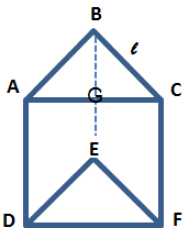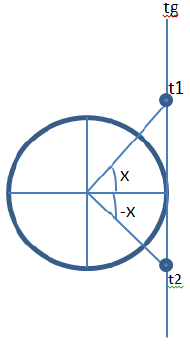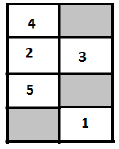Questões de Vestibular UEG 2018 para Vestibular - Direito
Foram encontradas 52 questões
Leia o texto e responda à questão.
Keywords: human beings are not very good at keyword searches. There's a fallacy that human beings looking at documents is the gold standard which cannot be, because human may miss things.
Database: the explosion in the amount of electronic data generated today makes it hard for human workers to keep up. This so much more data nowadays need these technologies find relevant material for lawyers. Also the AI could not just look at the text of a document or email, it can look at the tone of the conversation, who sent it, to check if the item should be flagged for review in litigation.
Restless: computers don't get tired, they don't get hungry, they don't sleep in and all of the things that are biological problems that can happen to a human being can't happen to computers.
An example of this technology is ROSS - it is a legal research platform based on IBM's cognitive computing system Watson. This technology is being used by a number of law firms, which state that the legal sector has being changing along the years. Firms, particularly larger ones, begin to see the advantage of AI, and their legal future possibly will completely change, with lawyers working from office, home office and other possibilities.
Leia o texto e responda à questão.
Keywords: human beings are not very good at keyword searches. There's a fallacy that human beings looking at documents is the gold standard which cannot be, because human may miss things.
Database: the explosion in the amount of electronic data generated today makes it hard for human workers to keep up. This so much more data nowadays need these technologies find relevant material for lawyers. Also the AI could not just look at the text of a document or email, it can look at the tone of the conversation, who sent it, to check if the item should be flagged for review in litigation.
Restless: computers don't get tired, they don't get hungry, they don't sleep in and all of the things that are biological problems that can happen to a human being can't happen to computers.
An example of this technology is ROSS - it is a legal research platform based on IBM's cognitive computing system Watson. This technology is being used by a number of law firms, which state that the legal sector has being changing along the years. Firms, particularly larger ones, begin to see the advantage of AI, and their legal future possibly will completely change, with lawyers working from office, home office and other possibilities.
Leia o texto e responda à questão.
Keywords: human beings are not very good at keyword searches. There's a fallacy that human beings looking at documents is the gold standard which cannot be, because human may miss things.
Database: the explosion in the amount of electronic data generated today makes it hard for human workers to keep up. This so much more data nowadays need these technologies find relevant material for lawyers. Also the AI could not just look at the text of a document or email, it can look at the tone of the conversation, who sent it, to check if the item should be flagged for review in litigation.
Restless: computers don't get tired, they don't get hungry, they don't sleep in and all of the things that are biological problems that can happen to a human being can't happen to computers.
An example of this technology is ROSS - it is a legal research platform based on IBM's cognitive computing system Watson. This technology is being used by a number of law firms, which state that the legal sector has being changing along the years. Firms, particularly larger ones, begin to see the advantage of AI, and their legal future possibly will completely change, with lawyers working from office, home office and other possibilities.

Disponível em: <https://issuu.com/finnair_bluewings/docs/bluewings_01_2018/98>. Acesso em: 07 jun. 2018.
According to the information expressed in the image and data
“A curiosidade como inquietação indagadora, como inclinação ao desvelamento de algo, como pergunta, como procura de esclarecimento, faz parte da vida”.
As expressões destacadas, colocadas entre o sujeito e o verbo, têm como função argumentativa
Observe a imagem e leia o poema a seguir para responder à questão.

Vi ontem um bicho
Na imundície do pátio
Catando comida entre os detritos.
Quando achava alguma coisa,
Não examinava nem cheirava:
Engolia com voracidade.
O bicho não era um cão,
Não era um gato,
Não era um rato.
O bicho, meu Deus,
era um homem.
Observe a imagem e leia o poema a seguir para responder à questão.

Vi ontem um bicho
Na imundície do pátio
Catando comida entre os detritos.
Quando achava alguma coisa,
Não examinava nem cheirava:
Engolia com voracidade.
O bicho não era um cão,
Não era um gato,
Não era um rato.
O bicho, meu Deus,
era um homem.
Observe a imagem e leia o texto a seguir para responder à questão.

Douglas Okada. Vida no sítio, Óleo sobre tela, 60X 80 cm.
O que frouxo falava: de outras, diversas pessoas e coisas, da Serra, do São Ão, travados assuntos, insequentes, como dificultação. A conversa era para teias de aranha. Eu tinha de entender-lhe as mínimas entonações, seguir seus propósitos e silêncios. Assim no fechar-se com o jogo, sonso, no me iludir, ele enigmava: E, pá:
— Vosmecê agora me faça a boa obra de querer me ensinar o que é mesmo que é: fasmisgerado... faz-megerado...falmisgeraldo...familhas-gerado...?
Disse, de golpe, trazia entre dentes aquela frase. Soara com riso seco. Mas, o gesto, que se seguiu, imperava-se de toda a rudez primitiva, de sua presença dilatada. Detinha minha resposta, não queria que eu a desse de imediato. E já aí outro susto vertiginoso suspendia-me: alguém podia ter feito intriga, invencionice de atribuir-me a palavra de ofensa àquele homem; que muito, pois, que aqui ele se famanasse, vindo para exigirme, rosto a rosto, o fatal, a vexatória satisfação?
Observe a imagem e leia o texto a seguir para responder à questão.

Douglas Okada. Vida no sítio, Óleo sobre tela, 60X 80 cm.
O que frouxo falava: de outras, diversas pessoas e coisas, da Serra, do São Ão, travados assuntos, insequentes, como dificultação. A conversa era para teias de aranha. Eu tinha de entender-lhe as mínimas entonações, seguir seus propósitos e silêncios. Assim no fechar-se com o jogo, sonso, no me iludir, ele enigmava: E, pá:
— Vosmecê agora me faça a boa obra de querer me ensinar o que é mesmo que é: fasmisgerado... faz-megerado...falmisgeraldo...familhas-gerado...?
Disse, de golpe, trazia entre dentes aquela frase. Soara com riso seco. Mas, o gesto, que se seguiu, imperava-se de toda a rudez primitiva, de sua presença dilatada. Detinha minha resposta, não queria que eu a desse de imediato. E já aí outro susto vertiginoso suspendia-me: alguém podia ter feito intriga, invencionice de atribuir-me a palavra de ofensa àquele homem; que muito, pois, que aqui ele se famanasse, vindo para exigirme, rosto a rosto, o fatal, a vexatória satisfação?

Sabendo-se que o lado BC é igual a l, a área do paralelogramo formado pelos pontos BCFEB é
Observando-se o círculo trigonométrico abaixo, percebe-se que tg (-x) = - tg (x)
 Nessas condições, o domínio da função S = tg (x - 30°) é igual a
Nessas condições, o domínio da função S = tg (x - 30°) é igual a
O total de cartelas diferentes que ela poderá confeccionar é
